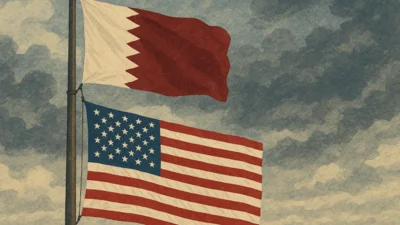The Congressional Record is a unique source of public documentation. It started in 1873, documenting nearly all the major and minor policies being discussed and debated.
“TIBET ``FROM ALL ANGLES''” mentioning the U.S. Dept of State was published in the Extensions of Remarks section on pages E990 on July 10, 2018.
The State Department is responsibly for international relations with a budget of more than $50 billion. Tenure at the State Dept. is increasingly tenuous and it's seen as an extension of the President's will, ambitions and flaws.
The publication is reproduced in full below:
TIBET ``FROM ALL ANGLES''
______
HON. CHRISTOPHER H. SMITH
of new jersey
in the house of representatives
Tuesday, July 10, 2018
Mr. SMITH of New Jersey. Mr. Speaker, we recently had a hearing on the egregious human rights violations in Tibet. This hearing, again, reminds us of the dire and worsening situation of the Tibetan people inside of China. We very robustly welcomed Dhondup Wangchen to the United States.
We were glad for him to join us and that he is finally reunited with his family. What an unbelievable irony that at a time when China is buying Hollywood, buying access to universities, and buying companies to influence product, that a man who speaks so eloquently about another product of the Chinese government--repression--would find himself so horribly mistreated.
As Chairman Rubio said, Mr. Wangchen was one of the key focuses of this Commission for a very long time.
He is one in a long line of heroic dissidents and former prisoners of conscience who have testified before this Commission. The Chinese government may not like our efforts, and that is an understatement. They do not like light being shown on their human rights abuses, but nothing good happens in the dark. We need to accelerate what we are doing to bring focus and scrutiny to their abuses.
We are looking at Tibet from all angles, as a human rights issue, as a critical matter of diplomacy, and as a geostrategic concern. Too often human rights and human rights diplomacy are discounted or ignored as a secondary concern in bilateral relations. That has been a bipartisan failure by a number of White Houses and State Departments.
They are too often viewed as problems, and not of real interest to the United States. I believe that sells out the dissidents, and sells out the best and the bravest women and men in China and anywhere else where we practice that kind of subordination of human rights to other concerns.
It is abundantly clear that we are in direct link between China's domestic human rights problems and the security and the prosperity of the United States. There is a link.
The health of the U.S. economy and the environment, the safety of our food and drug supplies, the security of our investments and personal information in cyberspace, the academic freedom of our universities and the civility of a specific region will all depend on China complying with international law, allowing the free flow of news and information, complying with its WTO obligations and protecting the basic rights of Chinese citizens, including the fundamental freedoms of religious expression, assembly and association.
Losing sight of these facts leads to bad policy, bad diplomacy, and the needless juxtaposition of values and interests. It also sends the wrong message to those in China standing courageously for greater freedom, human rights, and the rule of law.
There is the issue of corporate capitulation referenced by our distinguished Chairman. As Mercedes Benz pulled an advertisement on Instagram with the Dalai Lama and a quote, ``Look at a situation from all angles and you will become more open.'' Like Delta and Marriott before it, Mercedes shamelessly apologized even though Instagram is blocked in China.
I remind my colleagues that back in 2006, I began a series of hearings where we had Google, Microsoft, Cisco and Yahoo. I had them take the stand and swear in. It was an eight-hour hearing. And they were not only censoring all things on their platforms, Google especially, but they were also aiding and abetting the propaganda of the Beijing dictatorship, all for profit--all for profit.
Now we see others following that terrible and dangerous precedent of years ago. It has been unabated, and now it's continuing even in a more shameless way towards Tibet.
The administration's national security strategy rightly identifies China's foreign influence operations as a strategic threat. It is imperative to counter China's global influence operations and efforts to export its authoritarian model, and globally.
I chair the Africa, Global Health, Global Human Rights, and International Organizations Subcommittee. We had a hearing in March on the influence of China in Africa. We have had these hearings before, but it is getting worse. The bad governance model of Beijing is being accepted by some, particularly dictatorships like Zimbabwe. So we need to bring a light there and compete with that influence that is being subjected, or imposed, I should say, on Africa.
As China increasingly flexes its economic muscle, the result will be more apologies, sadly, accommodation and self-censorship.
Corporate America needs to get more of a backbone. It needs to stand for fundamental freedoms. Yes, make a profit, but do so in a way that does not violate human rights. And it is not just companies that have capitulated, but universities and Hollywood, and nongovernmental organizations, and even whole countries.
As China's Belt and Road initiative expands, so will demands that countries be silent about human rights abuses, silent about religious persecution, and silent about the Chinese government's repeated failures to abide by its international obligations.
Where is the UN? I have raised it over and over again. The Human Rights Council, even at the Periodic Review, it is a very short look and scrutinizing--Israel gets unbelievable focus at the United Nations on all things related to human rights; China, not even a slap on the wrist.
We should not be silent about the abuses faced by the Tibetan people and religious leaders. The China Commission's political prisoner database contains records on 600 known Tibetan political and religious prisoners. Forty-three percent of those detained are monks, nuns and religious teachers. Almost all were imprisoned since 2008.
The Tibetan people have a right to practice their religion, preserve their wonderful culture, and speak their language. They have a right to do so without restriction or interference. The Chinese government, of course, does not agree. To them, their faith and culture are problems to be solved, not a heritage to be preserved and protected. To them, the Dalai Lama is an agitator and a revolutionary, not a world-renowned and respected voice for peace and harmony that we know him to be.
The Chinese government wants the Tibetan Buddhism that is attractive to tourists for photo-ops, and not one that is strongly embraced and revered by the Tibetan people. Allowing greater religious freedom is an essential part of dealing with the grievances of the Tibetan people, but China's answer is always the same: control, manage and repress, incarcerate, and torture. It is counterproductive and it violates China's international obligations.
Finally, in our dealings with the Chinese government and officials, Members of Congress and the administration should affirm the peaceful desires of the Tibetan people for greater autonomy and freedom within China. We should stress that China's policies create needless grievances and their repression of Tibet only hurts China's international prestige. It brings dishonor--dishonor to Beijing.
We should demand open access to Tibet by journalists and diplomats, and we should raise the cases of prisoners of conscience with Chinese officials. U.S. leadership on these issues is critical because our allies in Europe and Asia can often be bullied by Chinese threats of economic boycotts. We must demonstrate that Tibet matters, human rights matter, and that religious freedom matters to U.S.-China relations.
And, again, I thank Chairman Rubio who has been a stalwart in speaking out on behalf of human rights all over the world, including and especially in Tibet.
____________________








